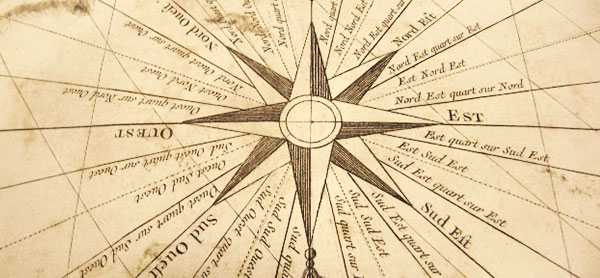The recently enacted Maritime Navigation Act will be a turning point in the nautical recreation regulation. In this article, some of the main aspects which affect the industry will be addressed.
Last September 25 come into force the recently enacted Act 14/2014, dated 24th July, of Maritime Navigation. An ambitious law that aims to encompass the scattered Spanish maritime legislation into a single text, structured in our country by the old Commercial Code of 1885. Despite having followed the elaboration process closely and actively, a thorough reading of the final text is needed in order to determine the significant impact it will have upon the national maritime law, and the particular impact it will have upon nautical recreation, which is what we refer to in this article.
Nautical recreation development is subsequent to several rules which govern navigation and since it is primarily an activity outside the commercial business, key to the development of maritime law, it is always questionable if relations regarding nautical recreation are regulated by this area of law. In order to enlighten you with an example, few claims arising out of contracts referred to vessels (purchase or repair) are handled today in the field of commercial courts by maritime law enforcement, situation which will surely change with the entry into force of the Maritime Navigation Act.
Having said this and while the Courts, with the rise of litigation related to nautical recreation went for the application of maritime law rules, they kept on applying the common rules, unless one of the lawyers in the dispute claimed those. The Maritime Navigation Act makes it clear that it will be of application to legal relationships that occur around shipping, which not only involves those strictly related to the act of navigation, such as salvage and towage, but also those that occur around the navigational vehicle, like the purchase or repair contract, specifically regulated. Navigational vehicles are defined as those which can sail and transport individuals, with independence of its length, making a distinction between a "buques" (vessels over 24 metres we can call ships) and "embarcaciones" (vessel less than 24 metres we will call boats), not making any reference to the type of navigation (commercial or private), that is, expressly including recreational ones.
To analyze how the nautical and maritime law fits in clearly requires a comprehensive and sensible compendium. In this article we will refer only and briefly, trying to avoid being exhaustive, to some titles of the Maritime Navigation Act which clearly affects nautical recreation.
Title I. Administrative management of navigation
This title applies expressly too all vessels, being established the possibility that statutorily recreational vessels may be regulated by a special regime, regulation which we understand is already enacted and which will maintain its validity.
Specially, it should be highlighted that from the 25th September 2014 onwards, all foreign State ships must recruit a consignee in order to enter into Spanish ports, except recreational vessels which have less than 24 metres. Regarding dispatch (authorization for sailing given for the Maritime Authority), a special regime is foreseen for recreational vessels, which to some extent we already have but there is room for its improvement. The anchoring of foreign recreational ships and boats in small coves is authorized expressly and by Law, matter for which, until next 25th September, requires of an authorization, which obviously and luckily, has never been required. The right of innocent passage through Spanish waters by foreign ships did not provide for detention outside port areas without permission.
Title II. On vehicles for navigation
The distinction is established between ships and boats, being the latter the ones up to 24 metres in length, distinction which had already been proposed in the administrative regulation and in particular by the community regulation. Registration of ships and boats at the Register of Moveable Assets becomes discretionary, whereas until date they were being compulsory for ships and, until recently, for recreational commercial vessels, that is to say, from the Sixth List in the Spanish Ship Registry. Regarding documentation of ships, it is regulatory expected that a simplified regime is established for recreational, as we already have.
Shipbuilding and sale of ships and vessel contracts are regulated in Chapter V and VI, legal relations which up to date lacked of a specific regulation. It must be pointed out that the built ship is guaranteed ex – legis for a period of one year and that this regulation applies also to repair contracts or naval remodeling when "the importance of the situation justifies it."
In the purchase agreement, the milestone is that the six months latent defects guarantee, generally established by the Civil Code, is reduced to three months when referred to ships or boats. Logically, actions which protect consumers in the specific legislation are set aside, and these are declared incompatible against those actions planned by the Maritime Navigation Act. Guarantee rights are regulated in Chapter VII and allows the retention of the ship or vessel by the holder of credits arising from the construction or repair thereof.
Title III. Subjects of navigation.
A clear distinction is established between the ship-operator, who is the one who operates the ship and the shipping company, who does not always need to be the ship-operator. This is an important aspect because it fully affects one or the others responsibility. The reservation established in favour of nationals from countries of the Common European Space to hold the position of captain in Spanis ships is maintained. In the case of recreational vessels which are leased without a skipper and even private ones without professional crew, experience suggests us that there is an exemption which allows to non-Community citizens (with title enabled of course) to act as a master, therefore we can establish that the reservation only applies to cases where there is crew hired. It is important to point out the fact that when regulating the obligations of the master the Maritime Navigation Act requires him the diligence required from a "competent mariner". That is to say, the same competence is required from a Merchant Captain than from a skipper of Recreational Vessels.
Title IV. On contracts for use of ships
The charter agreement regulation is briefly but highly intense, deserves great attention and surely repeals many of the clauses from the actual charter contract formularies, like MYBA one. In example, if the delivery of the yacht is deleted for 48 hours, charterer has the right of reject the contract and get his payments back and to be indemnified. This prevision, like many others, is imperative. Mean can not be abolished by the parts. It is also imperatively required in the charter contracts that ships must be delivered in a seaworthy state, fact which is quite logical. The nautical or charter lease contract is briefly regulated, with or without crew, referring to the lease or charters contracts respectively. It is established by Law that the Captain and the crew must follow instructions from the lessee provided they do not endanger the ship or crew.
Title V. On ancillary navigation contracts
Naval management contracts are regulated, which could be perfectly applicable to the "charter management contract" or "yacht management contract" used in the sector. The liability regime of the manager is established and, in the absence of express regulation, the rules forwards to agency or business commission agreements for its regulation. Shipping agency contracts are also regulated, being now especially relevant due to the fact that foreign recreational ships need a consignee.
Title VIII. On maritime insurance contracts
In this issue, it is clearly established by the law what doctrine was already stating and the Courts applying: the insurance from a recreational ship or boat is a maritime insurance and, due to this fact, the parties may agree what suits them. That is, a nautical fan does not have the protection conferred by the Law of Insurance Contract, which applies subsidiary, unless when it comes to recreational boats (not ships) compulsory liability insurance. In my opinion, it is not clear what is being meant to with the universality risk principle established by the repealed Commercial Code and profiled by the jurisprudence by which coverage covered any maritime accident, unless otherwise agreed.
Title IX. Procedural Specialities
At this point it is noteworthy that jurisdiction clauses which appear in forms will be considered void if they have not been agreed individually and separately. This would affect, when Spanish Law applies (this point need of special study) to MYBA contracts which usually refer to English arbitration or jurisdiction.
Finally, through the seventh additional provision it is directed to the Government the creation of a special and simplified registry for historical vessels and reproductions (today, due to the CE marking requirement it is impossible to register them in Spain). Furthermore, it is expected that ships belonging to the historical heritage, of cultural interest or relevant, may be able to enjoy a preferential tax treatment. We hope they act fast.
As we said at the beginning, nautical recreation is already clearly immersed in maritime law. Even though it may involve a certain change in the situation which we are used to, it should be welcomed, all in order to increase legal certainty, of which we are so in need, essential in order to undertake any business with minimum guarantees. We insist in the fact that the professional must read each chapter of the rules. Like in any activity, it is crucial to know the path in which we are moving.
Marc 2015
Yamandú Rodríguez Caorsi
Abogado
Blas de Lezo Abogados
Calle 60 Zona Franca, 25, Edificio ZETA
08040 – Barcelona
Tel: 0034 934192489
Fax: 0034 934193611
Móvil: 0034 615320452



